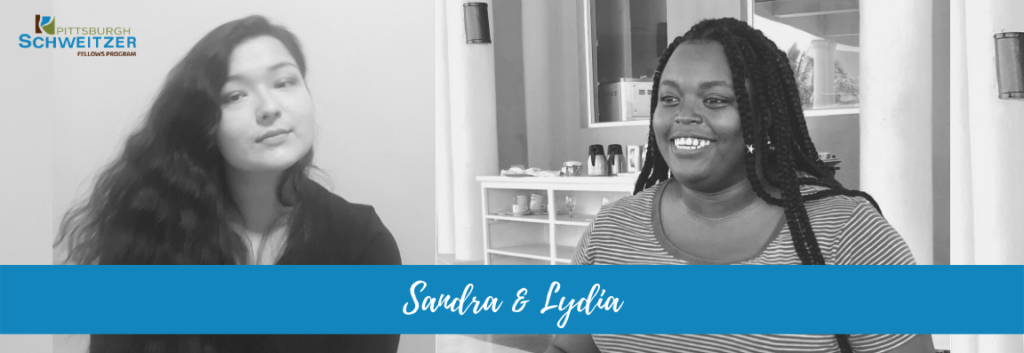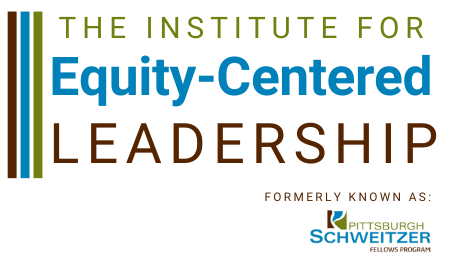
Sandra Talbot and Lydia Olawaiye’s Fellowship project began with the motto, “find a need and fill it.” In collaboration with the Homewood Brushton Clinic and the Asthma QI Project, Sandra and Lydia aim to address the social determinants of health, including poor air quality, older housing, and lack of regular medical care. “We need to reduce emergency room admissions through preventative care,” Sandra stated.
They will primarily be working with children, but intend to increase overall patient turnout for appointments by assessing patient needs, scheduling visits, and providing resources remotely. “If we can address the socioeconomic determinants of health, we can prevent much worse health outcomes later on,” Sandra said. “Some patients don’t have transportation, some struggle getting time off work for doctors’ visits, or are restricted by the number of children limit for subsidized clinics. And of course, affordability is a huge issue.”
Sandra and Lydia’s project hopes to provide a centralized source of information and scheduling for Homewood-Brushton and the Asthma QI Project, especially during the COVID-19 pandemic when in-person visits are less accessible. “People will have new needs because of COVID-19, especially the asthma population,” said Sandra.
Sandra and Lydia, students at the University of Pittsburgh, School of Medicine, have a long history of service work. Both say they are most moved when they can form relationships with those they serve.
Lydia, a graduate of the University of Pittsburgh Neuroscience program, recounted a woman she met while teaching English at a community center in Paris. “We did a lot of social programs for loneliness and isolation, and there was this woman, she had been estranged from her children,” She recalled. “She was so willing to help, she helped us integrate into the community, and was so determined. I was amazed by her display of perseverance and strength.”
Sandra, who graduated from CUNY School of Medicine for Neurobiology and Neuroscience, worked in a soup kitchen with a wing dedicated to women and families. One man, a former adjunct physics professor, stood out to her for his positivity amidst challenging circumstances. “Seeing the result of someone who had fallen on tough times put everything into perspective,” she recounted. “We feel a barrier between us and the people we serve, but the reality is that so many of us are just one misfortune away from needing those services as well.”
Sandra and Lydia have begun reaching out to patients over the phone until they are able to do in-clinic services, and despite the obstacles presented by COVID-19, they remain optimistic about their ability to help their communities. “This collective experience is going to teach us all about ourselves and how we treat one another,” Sandra stated. “Change on a grand scale takes a long time,” Lydia added. “By attending to the immediate needs of our community, we can achieve big changes.”


































